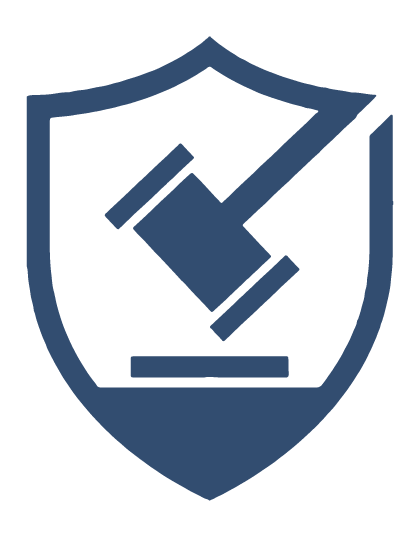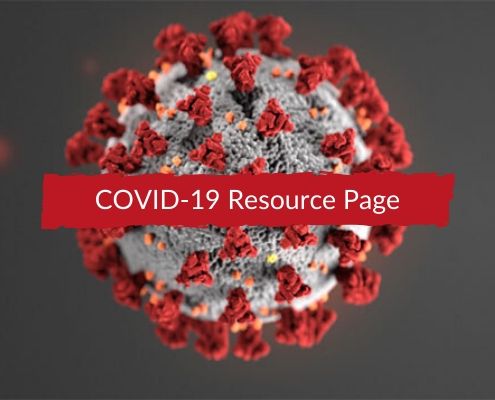Finances and Money
Whether applying for a credit card, choosing a bank, planning a budget, making an investment, or paying taxes, consumers can have their hands full trying to manage their finances. Click below for information on common consumer topics related to finances and money.

Budget Planning
How to Create a Budget
- To create a budget, first determine how much money is made each month, also known as your net income.
- Next, track spending each month for bills, food, luxuries, etc.
- Categorize these into groups such as necessities versus luxuries or needs versus wants. Identifying items in categories can help to identify where a person is spending most of their money or if they are spending too much on luxury items, such as going to restaurants or the movies.
- These luxury items are the first place to cut back on if the person is living paycheck to paycheck.
- A good rule of thumb is to allocate 50 percent of a budget to needs, 30 percent to wants, and 20 percent to savings or paying off debt.
- Review this budget monthly to update any changes in income or spending.
Retirement Planning
Planning for Retirement
- It is no longer the case that a person can live off social security in retirement.
- A good rule of thumb is that a person will need 70 percent of their pre-retirement income to live comfortably if there are no other debts like a mortgage. If a person has other debts, then he or she needs up to 100 percent of pre-retirement income.
- When creating a monthly budget before retirement, use some of the income to save up for retirement while possible.
- When planning for retirement, consider how long to work into retirement age.
- Consider when to collect social security in retirement. The longer a person waits to collect, the more they will get once they do start collecting social security.
- Plan for medical expenses as well as these tend to go up in retirement.
- Investing in secure investments is a good way to extend and grow a retirement savings rather than keeping it in a bank where is may gain little or no interest.
Education Planning
- Parents should start saving for their child’s college as soon as possible. They should open a college savings account that will bear interest, even if they are only able to put in a little at a time.
- Parents can have a set amount deducted from their income every month that will go towards a college savings account. This can help since the parents won’t have to think about adding money each month or when they can, they will live as if that is a regular monthly bill.
- Parents should consider using a 529 college savings plan. This is an investment portfolio of stocks and bonds which offer tax free growth when it is eventually used for college. If the child is young when the parents start this portfolio, they can use one that offers moderate risk on investments and becomes more conservative with investments as the child comes closer to going to college. If the child is close to going to college, the parents can use a plan that invests in less risky stocks and bonds.
- Financial aid is not guaranteed and the aid that is usually given is in the form of a loan, not a grant, which will have to be paid back after graduation.
- The biggest impact on financial aid calculations is what the parent earns, not what they have saved for college. It is better to save, and start saving early, for a child’s college rather than relying on financial aid.
- Financial aid does not always cover all educational expenses, which could require the parent to apply for a parent plus loan with the government or a private student loan. Saving for college is the best option over any type of loan since all loans, whether federal or private, accrue interest.
- Both parents and the student need to fill out the free FAFSA application online before attending college. This will generate how much financial aid the student would receive if they attended whatever schools they applied to.
Student and Federal Loans
Student Loans
- If college savings are not an option for your family or the student, student loans may be an option.
Federal Loans
- To obtain federal student loans, the borrower must fill out a FAFSA form online which allows the school and the federal government to determine how much federal financial aid to give based on a variety of financial information given in the FAFSA form.
- Federal student loans are often seen as low-risk with low and usually fixed interest rates. Some interest may be subsidized, thus paid for, by the government.
- Federal student loans don’t have to be paid back until after graduation plus a grace period, usually six months.
- If the borrower works in the public sector, such as federal, state, or local government, their federal loans can qualify them for the public service loan forgiveness program. In this program, monthly payments are made for ten years and then any leftover balance is forgiven. The leftover balance is not taxable in this program.
- There are other government programs for federal loans that have payments based on income, and will have any remaining balance forgiven after a certain period of time. These programs will cap the payment at 10%, 15% or 20% of the borrower’s discretionary income and will extend the repayment period to 20 or 25 years. The remaining balance that is forgiven is taxable.
- Beware of student loan debt scams that offer to help a borrower pay off their federal student loan debt or put them into an income driven plan for a fee. It is completely free to consolidate federal loans or to apply to put them into an income driven plan. Never pay someone to help with paying off student loan debt.
Private lenders also offer student loans but these tend to have higher costs, like interest rates and origination fees, compared to federal loans.
- Some private lenders can offer similar repayment programs as federal lenders, so if a borrower is struggling to make payments, they should contact their lender to see if they can work something out.
Important Tips for Student Loans
- If a borrower has sufficient funds each month to make their loan payment, they should put their loans on auto-debit. Some lenders offer a .25% reduction on the interest rate of the loan for putting the payment on auto-debit.
- If a borrower is able to make extra payments, pay off high interest rate debt first.
- Interest accrues on the total balance owed, also referred to as the principle. If a borrower makes extra payments, make sure it goes to the principle owed on the debt, and is not held as a “paid ahead” payment. If it is held as a paid ahead payment, interest is still accruing on the principle owed. If it is paid towards the principle, then the principle is being paid down and less interest accrues as the principle is paid down.
- If a borrower consolidates their federal and private loans into one loan, they will lose the protections offered for federal loans, such as income driven repayment plans.
- A borrower may deduct some of the interest they have paid in their tax return.
- Always talk to the lender if there is a possibility of defaulting. They can help to work out a payment plan or temporary forbearance of the payments. If a borrower defaults on their federal loan, the government can garnish wages and social security benefits and take the borrowers state and federal tax refunds. Defaulting also negatively impacts credit reports which can impact the ability to get other loans, such as a mortgage or car loan.
Estate Planning and Distribution of Assets
What is Estate Planning?
- Estate planning is when someone plans how they will transfer their assets when they die, such as through a will or a trust. Someone who is planning for their death should consult a local attorney to make sure they are complying with local laws for estate planning.
- A will states who will inherit the deceased’s property and can name a guardian if there are young children and both parents have died. Only property owned by an individual can be passed by a will, not property that is owned jointly.
- A trust can be made while alive or through a will and the property that is put into the trust does not go through probate. The creator of the trust will designate a trustee who manages the property for the benefit of one or more people, who are called beneficiaries.
Distribution of Assets
- If a person dies without a will, then they die “intestate.” This means that the distribution of their assets will pass to family members according to state laws.
- Probate is the lengthy process of distributing assets after death that were made through a will or by intestacy.
- Certain accounts can also avoid probate, which can be beneficial if the person has children or a spouse to care for and they are likely to face high estate taxes. Examples of such accounts include life insurance, designating a beneficiary for bank accounts and retirement accounts, and in some states investment accounts.
- Consult a local attorney to determine what accounts will not go through probate.
- Most estates will not have to pay federal estate taxes. The exemption changes each year but if the estate has assets less than approximately $5.4 million, then the estate will not have to pay estate taxes.
- States also may have an estate tax that is separate from the requirements for the federal estate tax, so check with a local attorney about possible state estate taxes.
Credit
Credit is the ability to receive something of value in exchange for the promise of paying for it at a later time, or over time, and usually with interest.
Types of Credit:
- Revolving Credit
- A traditional credit card is a form of revolving credit.
- A credit card allows the cardholder to borrow money up to a certain amount from the card issuer in which some or all must be paid back each month. If there is a balance left each month interest accrues, usually at a high interest rate.
- Credit cards can be used even if the holder does not have the cash right away. They may be able to pay part of the balance each month, allowing purchases of higher priced items, like furniture, that the holder may not be able to buy with cash.
- Credit cards can also offer different rewards for using them, such as cash back, airline miles, or reward points.
- If the card is a secured credit card, the person gives the issuer a deposit that is held as collateral if the holder fails to pay the money back.
- Credit cards are useful for those that can make their payments on time, as doing so helps build credit and can boost a credit score.
- Credit cards offer more protection from theft, since the funds aren’t drawn from the card holder’s bank account.
- Charge Cards
- Charge cards are similar to credit cards, however, the total balance must be paid off each month.
- Installment Credit
- Car loans, home mortgages, student loans, or credit builder accounts are a few forms of installment credit.
- Installment credit allows you to take a loan for a specified amount (the amount of a car or home) for payments made in installments over a specified period of time. Installment credit is usually a monthly payment for a large purchase.
- Service Credit
- Service credit is usually a contractual agreement to pay for a monthly service. A few examples are cell phone service, gym memberships, or household utilities.
- Not all service credit accounts are reported in your credit history.
Credit Reports
- Good credit is needed to purchase a home or a car, as it allows the lender to assess how much of a risk the person will be. Good credit means the person pays their bills on time, so they are likely to pay the new creditor on time as well. Lenders will use a credit report to decide whether they will lend money to a borrower as well as terms, like amounts and interest rates.
- How It Works
- There are three major credit reporting agencies: Transunion, Equifax, and Experian.
- A credit report details the types of credit accounts a person has, how long those accounts have been open, how much overall debt they have, and if the person has paid for those bills on time. It also states personal information like any addresses the person has had, employment information, as well as public information like if the person has been sued, has any liens, or has filed bankruptcy.
- Lenders submit updates, usually every 30 days, to at least one of the credit reporting agencies about payment history.
- The report also contains credit inquiries. Inquiries show each time someone has pulled the credit report, whether voluntarily giving permission to inquire about the score was given, or involuntarily, like when credit card companies pull the score to pre-approve the person for a credit card. The only inquiries that go to the credit score are those voluntarily given.
- Any negative information, such as failing to pay a debt, usually stays on the report for seven years.
- If there is negative information, the credit bureaus allow the person to attach a statement explaining why there is that information, such as it was due to a period of unemployment or health issue that prevented repayment. This statement is given alongside the report to anyone that requests the report.
- Credit Reports During COVID-19
-
- During the COVID-19 pandemic, the three largest credit reporting agencies (Equifax, Experian, and Transunion) have allowed Americans to check their credit reports on a weekly basis free of charge.
- As of March 16, 2021, these three credit reporting agencies have extended this benefit through April 20, 2022.
Credit Scores
- Credit scores range from 300-850. The credit agencies assign points to different characteristics to determine the likelihood of the person paying their debt. They are not allowed to consider race, sex, marital status, national origin, or religion. The higher the number, the better the credit score. A high credit score indicates the person pays their debts on time.
- Some of the point characteristics the credit bureaus use include: paying bills on time, if the balance on the credit is close to the credit limit, length of time of the accounts, and the type of credit accounts.
- To have a credit score, there must be at least one account opened for six months or more and one account that has reported to a credit reporting agency within the last six months.
- Some of the characteristics the credit reporting agencies use include: paying bills on time, if the balance on the credit is close to the credit limit, length of time of the accounts, and the type of credit accounts.
- To improve a credit score, pay bills on time and pay down outstanding balances.
Investments
What is an Investment?
- Investing is putting money into a certain endeavor today with the expectation that there will be income of profit in the future. Investing does not always guarantee a future return, which is one of the necessary risks involved. The goal is to get more money on the investment than was originally put in.
- Typical investment areas include stocks, mutual funds, bonds, and real estate.
How Do Investments Work?
- Many investments go through the process of compounding where the investment generates more return over time than initially invested.
- If you would like to make an investment, determine goals and a timeline of when the return is needed to assess how much risk you can afford to take.
- A young person saving for retirement can take more risks with their investments since they won’t be relying on the investment for a while. A person who is reaching retirement age would take less risk with their investment because they will need the returns in the not too distant future.
- An investment portfolio shows all of the investments made by a person. The portfolio should divide assets among different categories and types of investments in a way that mixes them so that your investment portfolio is “diverse.” A diverse portfolio makes it so that the investor is not investing in just one thing that may or may not provide returns.
- A useful resource for beginning investors is the Securities and Exchange Commission’s Guide to Asset Allocation, Diversification, and Rebalancing.
Types of Investments
- Stocks
- Stocks allow the buyer to take part in a company’s success when their stock increases or the company gives out dividends (a share of the company’s profits). It also gives the stock holder a claim to the company’s assets in the event of liquidation, as well as the right to vote at shareholder’s meetings if they do not hold preferred stock.
- Preferred stockholders do not have a right to vote at shareholder’s meetings, but they get paid first if the company gives out dividends and preferred stock holders have a higher claim to assets in the event of liquidation.
- Bonds
- Bonds allow an individual to loan money to a company for a certain period of time in exchange for interest payments in addition to the repayment of the original amount loaned.
- Mutual Funds
- Mutual funds are managed by an investment manager who invests a pool of money provided by investors in different types of investments, such as stocks or bonds.
- Real Estate Investments
- Real estate investment involves developing real estate and selling it, or buying real estate and letting another person use it in order to collect rent.
- People can have outright ownership when they buy and sell themselves, or they can have pooled ownership where they buy into the pool and someone else manages the investments in that pool.
Personal Banking
Opening a bank account
- A checking or savings account can be opened at a local bank, credit union, or with an online bank.
- Often, all you need to open a new account is two forms of identification, like a driver’s license and passport or birth certificate, your social security number, proof of address, like a utility bill or phone bill, and an initial deposit, which may range from $25 – $100.
- You will also be required to complete an application and sign a few documents.
- Research eligibility requirements of the bank of your choice prior to visiting a branch so that you are fully prepared.
Choosing the Right Account
- Checking Account
- A checking account is mostly used for making payments or having wages directly deposited.
- Bank accounts should be chosen based on your individual needs, such as which banks are near your neighborhood, choosing a student account, or choosing an account that also offers online banking options like mobile deposits or other perks.
- Some accounts will have fees such as monthly service charges, overdraft fees, and a fee if the minimum balance in the account drops below a certain amount.
- There are also other restrictions such as limiting the amount of transactions each month or setting wait times for deposited checks to be credited to the account.
- The bank may also have direct deposit for wages and the ability to pay bills directly through the account.
- Don’t be afraid to shop around to determine which account would best serve your needs.
- Determine if anyone else will have access to the account, such as a spouse or a child.
- To open an account, the bank requires one or two documents for proof of identification such as a driver’s license, proof of address such as a lease or utility bill, a social security number, and a certain amount of money to use as the opening deposit.
- Once an application has been submitted, the bank will run a credit check to determine if bills have been paid normally in the past to avoid an applicant who is likely to overdraft or who will be unable to pay possible fees.
- When the application has been approved, the bank will mail a debit card along with checks to use.
- Savings Account
- A savings account is usually used to earn interest on what is put into the savings account.
- A savings account may not require a minimum monthly balance, but this will depend on the bank and the type of savings account you choose.
Bank Fees
- Most banks charge a monthly maintenance fee for an account. This can often be waived by the bank if there is a minimum amount in the account or the checking and savings are linked.
- Banks also charge for using an ATM that is not affiliated with the bank.
- The bank may also charge if there is an overdraft fee when there are insufficient funds in the account to cover a transaction, but the bank allows the transaction to go through. This is called overdraft protection. You can avoid overdraft transactions if you sign up for low balance alerts. If the account does not include overdraft protection, the transaction may be declined and face a fee for insufficient funds.
- Some savings accounts limit the amount of withdrawals per month. If there are too many withdrawals, there may be a fee for each withdrawal over the limit.
- Some banks charge a fee for closing an account. Usually an account needs to be open for a certain period of time to avoid closing fees.
- Often banks charge a fee for foreign transactions, buying something in another country even if it was bought online in the U.S.
Debit Cards
- A debit card allows the account holder to spend the money that is available in their bank account.
- Unlike credit cards, debit cards usually have few or no fees, unless there is an overdraft.
- An overdraft is an authorized charge, usually covered by the bank, for an amount that exceeds the cardholder’s available account balance.
- Debit cards are most useful for those that are more prone to spending, since they can only use what is in their account or they face an overdraft fee and possibly other penalties.
- Typically, if the cardholder loses their card or notices theft, they must report the dispute within two days, and the bank will cover liability up to $50. If the dispute is not reported with those few days, the holder’s liability can increase to $500.
Taxes
- Income taxes are used by the government to operate everything from public transportation to the police to Social Security. Income taxes include not only salary, but dividends, lottery winnings, unemployment compensation, and earnings from personal businesses.
- There are both federal taxes and state taxes.
- There are other taxes such as sales taxes on goods and property taxes on real estate.
- Tax withholdings can take out the maximum amount of taxes so as to have a larger tax refund, or they can be changed to have less taken out so as to have take-home money now.
- Consult a tax accountant to determine which deductions are available, such as for higher education costs, health care, or dependent children.
- If a person has to pay taxes after filing their federal or state tax returns, never pay in cash. This helps avoid those who wish to steal the money. The safest way is to file online and use the IRS direct pay.
- Taxpayers have the right to know how much they owe and to appeal that amount.
IRS 2019 “Dirty Dozen” Tax Scams (to view the full article, please click here):
- Phishing
- Taxpayers should be alert to potential fake emails or websites looking to steal personal information. The IRS will never initiate contact with taxpayers via email about a bill or tax refund. Don’t click on one claiming to be from the IRS. Be wary of emails and websites that may be nothing more than scams to steal personal information.
- Phone Scams
- Phone calls from criminals impersonating IRS agents remain an ongoing threat to taxpayers. The IRS has seen a surge of these phone scams in recent years as con artists threaten taxpayers with police arrest, deportation and license revocation, among other things.
- Identity Theft
- Taxpayers should be alert to tactics aimed at stealing their identities, not just during the tax filing season, but all year long. The IRS, working in conjunction with the Security Summit partnership of state tax agencies and the tax industry, has made major improvements in detecting tax return related identity theft during the last several years. But the agency reminds taxpayers that they can help in preventing this crime. The IRS continues to aggressively pursue criminals that file fraudulent tax returns using someone else’s Social Security number.
- Return Preparer Fraud
- Be on the lookout for unscrupulous return preparers. The vast majority of tax professionals provide honest, high-quality service. There are some dishonest preparers who operate each filing season to scam clients, perpetuate refund fraud, identity theft and other scams that hurt taxpayers.
- Inflated Refund Claims
- Taxpayers should take note of anyone promising inflated tax refunds. Those preparers who ask clients to sign a blank return, promise a big refund before looking at taxpayer records or charge fees based on a percentage of the refund are probably up to no good. To find victims, fraudsters may use flyers, phony storefronts or word of mouth via community groups where trust is high.
- Falsifying Income to Claim Credits
- Con artists may convince unsuspecting taxpayers to invent income to erroneously qualify for tax credits, such as the Earned Income Tax Credit. Taxpayers should file the most accurate tax return possible because they are legally responsible for what is on their return. This scam can lead to taxpayers facing large bills to pay back taxes, interest and penalties.
- Falsely Padding Deductions on Returns
- Taxpayers should avoid the temptation to falsely inflate deductions or expenses on their tax returns to pay less than what they owe or potentially receive larger refunds. Think twice before overstating deductions, such as charitable contributions and business expenses, or improperly claiming credits, such as the Earned Income Tax Credit or Child Tax Credit.
- Fake Charities
- Groups masquerading as charitable organizations solicit donations from unsuspecting contributors. Be wary of charities with names similar to familiar or nationally-known organizations. Contributors should take a few extra minutes to ensure their hard-earned money goes to legitimate charities. IRS.gov has the tools taxpayers need to check out the status of charitable organizations.
- Excessive Claims for Business Credits
- Avoid improperly claiming the fuel tax credit, a tax benefit generally not available to most taxpayers. The credit is usually limited to off-highway business use, including use in farming. Taxpayers should also avoid misuse of the research credit. Improper claims often involve failures to participate in or substantiate qualified research activities or satisfy the requirements related to qualified research expenses.
- Offshore Tax Avoidance
- Successful enforcement actions against offshore cheating show it’s a bad bet to hide money and income offshore. People involved in offshore tax avoidance are best served by coming in voluntarily and getting caught up on their tax-filing responsibilities.
- Frivolous Tax Arguments
- Frivolous tax arguments may be used to avoid paying tax. Promoters of frivolous schemes encourage taxpayers to make unreasonable and outlandish claims about the legality of paying taxes despite being repeatedly thrown out in court. The penalty for filing a frivolous tax return is $5,000.
- Abusive Tax Shelters
- Abusive tax structures including trusts and syndicated conservation easements are sometimes used to avoid paying taxes. The IRS is committed to stopping complex tax avoidance schemes and the people who create and sell them. The vast majority of taxpayers pay their fair share, and everyone should be on the lookout for people peddling tax shelters that sound too good to be true. When in doubt, taxpayers should seek an independent opinion regarding complex products they are offered.
Other Financial Scenarios
Pay Day Loans
- If you can avoid taking out a payday loan, you should do so.
- A pay day loan is a short-term loan where a borrower writes a check to the lender for how much they need to borrow, usually $500 or less, plus a fee. The lender gives the borrower the cash for the check, minus the fee and agrees to hold the check until the loan is due. The check is usually to be deposited on the borrowers next pay day. If the loan is extended, or rolled over, new fees are charged in addition to the annual percentage rate (APR).
- The annual percentage rate for payday loans is about 390% compared to a credit card that charges 20%. This high rate can quickly accumulate interest if the loan if not paid off the first time it becomes due.
- The fees and interest on these loans usually hurt people more than they help as people are paying more to borrow the money so their overall expenses go up. It doesn’t take long before a person is paying more in fees and interest than they originally borrowed.
- If the borrower is in the military, then the law requires the APR on the payday loan not exceed 36%.
- Payday loans are also called cash advance loans, deferred deposit loans, or check advance loans.
- Many payday lenders do not report on time payments to the credit bureaus and usually do not report late payments or defaults. However, if a person fails to repay the loan, the lender can outsource the debt to a collections agency who will report the default to the credit bureau.
Structured Settlements
- A structured settlement is when a person agrees to receive payments from a personal injury suit in the form of payments over time rather than as a lump sum. In exchange for these payments, the injured party agrees to settle the suit and not go to trial.
- These payments are sought over lump sum payments because they can avoid being taxed as income.
- Payments from structured settlements do not affect government benefit eligibility, such as Social Security or Medicaid.
- The settlement can designate a beneficiary to continue to receive the payments in the event of the death of the recipient.
- These payments can be scheduled in any way, such as monthly or set lump sums a couple times a year.
- The settlement is put into an annuity that gains interest, which can yield a higher payment over time than the lump sum the recipient could have gained.
- Structured settlements are a good idea for minors or those that will suffer from a lifelong injury as they allow for long-term investing and the certainty for lifelong payments.
- In most states, these payments are guaranteed by state insurance laws, so even if the insurer who is responsible for the payments goes bankrupt, the payments will continue to be paid.
- Once the terms of the settlement are finalized, they cannot be changed.
How to Respond to or Prevent Financial Fraud
Credit Freeze
- A credit freeze, also called a security freeze, allows a person to restrict access to their credit report. This is done to help protect against identity theft. If someone, other than you, attempts to open a new credit account they are unable to because most creditors will not extend credit if they cannot access a credit report.
- Thanks to advances in technology, data breaches have become more common. Data breaches are security incidences that result in a hacker’s unauthorized access to sensitive personal information that can used for identity theft or other forms of fraud.
- Credit freezes are a form of protection in those instances, but should be used only after understanding fully what a credit freeze does and how it works.
- In some states, the freeze will expire after seven years, but in other states, the freeze will remain until actively lifted by the consumer.
- A credit freeze is different than a fraud alert, in that possible creditors can still access the credit report if they first verify the identity of the consumer and there are no fees associated with a fraud alert.
- Things to keep in mind when opting for a credit freeze:
- The process involves informing all three credit reporting agencies. This requires identify verification and receiving a secured PIN that will allow you to freeze or unfreeze your credit report
- Freezes are free. The recent Economic Growth, Regulatory Relief, and Consumer Protection Act made credit freezes in all 50 states free if you are the victim of identity theft and have a valid investigative report.
- A credit freeze may not help after a data breach. This is because a credit freeze is a proactive approach to preventing identity theft. If your data has already been compromised, a credit freeze will only prevent future use of your information for fraudulent purposes.
- If you have transactions that will require a credit report coming up, you may not want to request a credit freeze. Some transactions may be a mortgage application, setting up a new utility bill, or even opening a new bank account.
- You can still apply for a job or get a new bank account and a credit freeze will not impact credit scores, but the freeze will need to be lifted, either temporarily for a short period of time or for a specific party, or permanently for them to be able to access the report.
- There is a waiting period to “thaw” a credit freeze, so plan accordingly.
- Things to keep in mind when opting for a credit freeze:








